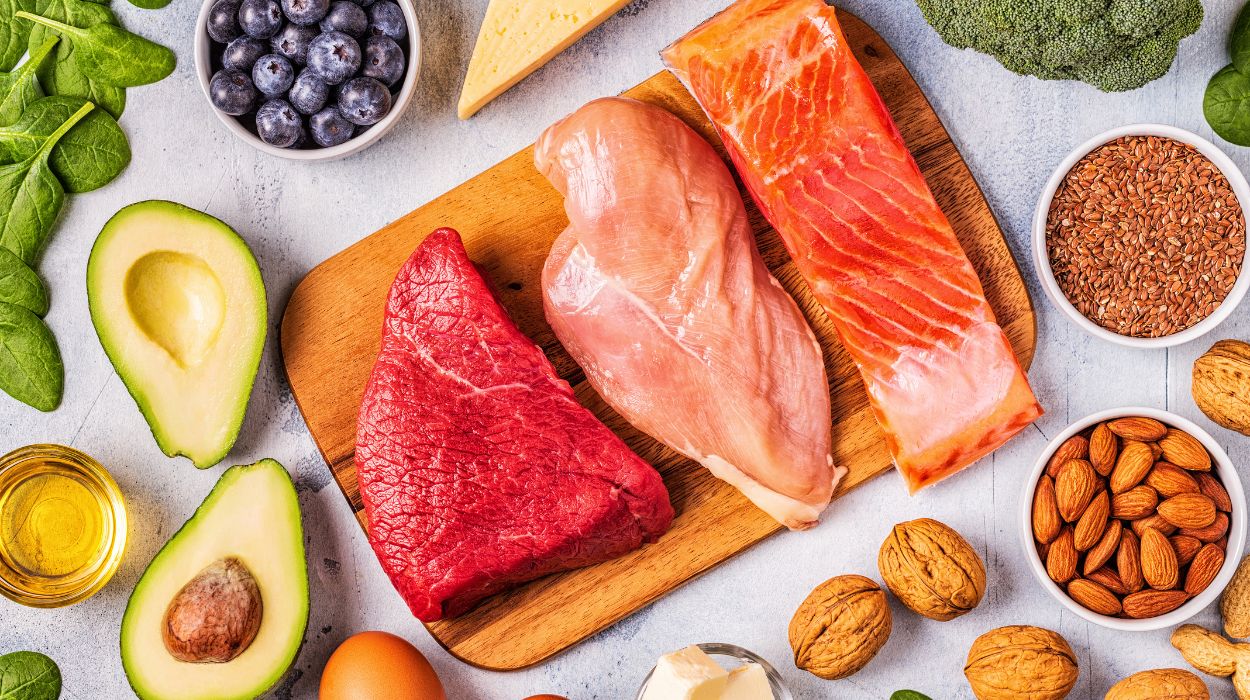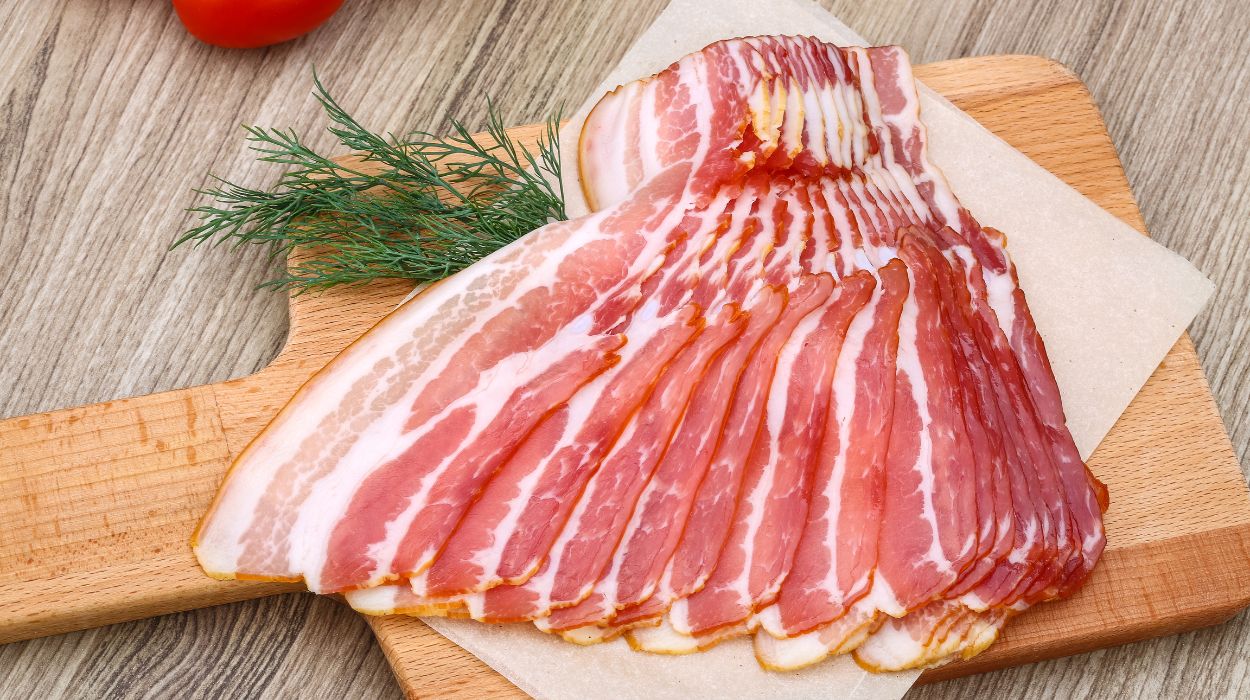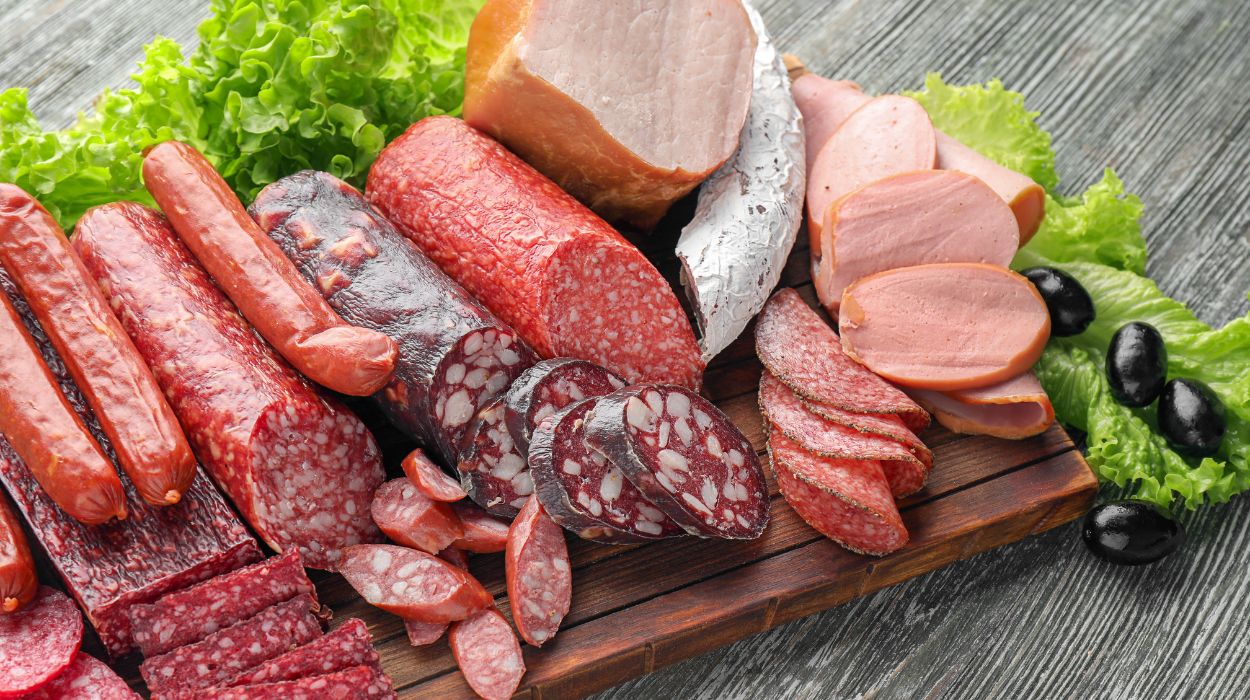 Expert's opinion
Expert's opinion
Expert's opinion
The article is a subjective view on this topic written by writers specializing in medical writing.
It may reflect on a personal journey surrounding struggles with an illness or medical condition, involve product comparisons, diet considerations, or other health-related opinions.
Although the view is entirely that of the writer, it is based on academic experiences and scientific research they have conducted; it is fact-checked by a team of degreed medical experts, and validated by sources attached to the article.
The numbers in parenthesis (1,2,3) will take you to clickable links to related scientific papers.
Dirty Keto Diet 2024: Everything You Need To Know

The ketogenic diet has been around for decades. Still, it has gained popularity in recent years due to its health benefits, such as the ability to help people lose weight and its positive effects on ketogenic brain health. The standard keto diet says to limit carbs to 10% of your dietary intake while making fat 70 % of your intake, and protein filling in the gap at 20%. For ideas on what to eat on a keto diet, check out this keto diet foods list. Additionally, you may want to review the best multivitamin for the keto diet to help fill in nutritional gaps. A “dirty” keto diet is a variation of the keto diet in which the quality of the foods is sacrificed for the sake of macros – for example, fat can come from extremely unhealthy sources, as long as there is enough fat. Let’s explore this further.
Dirty Keto Diet
“Dirty keto” is an expression referring to poor food choices. It’s basically a slang term rather than a specific eating pattern on the ketogenic diet. The dirty keto diet can give the illusion of being healthy, under the guise of “keto”. However, someone who eats dirty keto may be compromising their health, without realizing it. This is a consequence of focusing solely on getting enough fats and limiting carbs but not prioritizing whole, unprocessed foods in the process.
What Is Dirty Keto?

The phrase “quick and dirty” refers to a way to expedite a process efficiently and timely, yet comes with the consequences of cutting corners. The same can be said for the “dirty” in “dirty keto”. Dirty keto is a dietary approach in which the quality of food is ignored, and instead, the person focuses solely on macros. This means a person may eat mostly bacon, lard, greasy french fries, and other unhealthy fats, for the sake of getting enough fat in their diet, rather than choosing healthier sources of fat such as avocados, nuts, and fish. On this diet, the same “dirty” approach is taken toward the 10% carbs (they could come from processed flours, cookies, and other unhealthy carbs, rather than whole grains) and the 20% protein (they could come from beef jerky and processed meats rather than eggs or organic, lean meat).
Dirty Keto Diet: Pros & Cons
Pros
Despite being “dirty”, the dirty keto diet is still a ketogenic diet in which carbs are limited, fats are increased, and the body ideally goes into ketosis[1] (it burns fat for energy rather than carbs). As a result, you can expect to experience some of the same pros as being on a clean keto diet, such as reduced hunger, weight loss,[2] better cholesterol levels, improved brain function, and fewer sugar cravings.
Additionally, being on a dirty keto diet is a lot easier to stick to than a regular keto diet because there is less attention paid to the quality or source of the food. The less restrictive the diet, the easier it is to follow for longer periods of time. And since eating fast food is allowed on the dirty keto diet, it’s more cost-effective, which can be a big pro for anyone who has budget constraints.
Cons
The downsides of eating dirty keto center around compromising other aspects of health in exchange for a quick and dirty way to do keto. More specifically, a dirty keto diet is low in nutrients[3] – vitamins, minerals, fiber, probiotics – all the things humans need to thrive. The packaged and processed foods allowed on the dirty keto diet contain poor-quality fats that can damage the gut, leading to a weakened immune system and poor skin health. The lack of fiber can cause constipation (which has further health implications such as poor detoxification).
Dirty keto diets also tend to have more salt than traditional keto diets. These salts are added to many processed and packaged foods. Too much sodium can raise blood pressure[4] to unhealthy levels. Aside from excess salt, dirty keto diets are high in inflammatory oils and other foods that drive inflammation in the body. Inflammation can show up as minor symptoms such as rashes, acne, headaches, and joint pain, but also contribute to serious diseases such as inflammatory bowel disease, heart disease,[5] Alzheimer’s disease, and overall mortality.[6]
Is The Dirty Keto Diet Right For You?
From a health perspective, a dirty keto diet will almost always be a less desirable choice than a standard keto, or even a “lazy” keto diet (in which only carbs are monitored rather than all three macronutrients, but whole foods are still the priority). Food quality matters, no matter what diet you follow. However, this is assuming that the person following a keto diet can just as easily follow a whole foods-based keto diet. But not everyone can.
For example, if financial constraints make it difficult to eat whole foods and/or a traditional keto diet feels too restrictive and hard to keep up with, it may be advantageous to do dirty keto initially, as a way to start the ketosis process. Then at a later time, if you choose to continue eating keto, you may want to start swapping out the unhealthy fats for healthy fats (same for protein and carbs), shifting your focus more on food quality. In other words, you may be overwhelmed at first and find it easier to focus on the macros and calorie counting, dirty or not, but once you have the macronutrient distribution figured out, it can free you up to start eating cleaner.
What Can You Eat On A Dirty Keto Diet?

A dirty keto diet doesn’t necessarily mean you only have to eat “dirty” keto foods, but rather, these processed foods are allowed on the diet. All kinds of fats are acceptable on a dirty keto diet, but here are some foods that would likely be consumed on a dirty keto diet:
- Hamburgers without the buns
- Cheese, including heavily processed cheeses
- Diet sodas and other drinks sweetened with artificial sweeteners
- Deli meats, cured meats, bacon, lard, pork rinds
- Margarine, mayo, vegetable oils
- Snacks like cheese or potato chips, chocolate, and low-sugar cookies
The Difference Between Dirty Keto Vs Clean Keto
The main difference between dirty keto and clean keto diets is the food quality. Both diets are ketogenic – they require calorie counting and monitoring of macros. Both diets suggest that carbs be kept to about 10%, and protein kept to about 20%, allowing fats to make up the bulk of the diet at 70%. They can help with weight loss via ketosis (getting the body into a state where it burns fat for energy, rather than carbs).
The quality of the food, or the source of the macros is what distinguishes “clean” vs. “dirty” keto. On a clean keto diet, healthy sources of fat, such as avocados, olive oil, coconut oil, nuts, seeds, and wild-caught fish are chosen. The same is true for protein and carbs (organic meat for protein, pasture-raised eggs, and whole grain, unprocessed carbs are chosen over processed flour and sugar). By contrast, the dirty keto diet plan is not concerned with processed versus unprocessed foods, whether something is artificial or not, whether it has chemicals or additives or other inflammatory ingredients – it simply addresses getting enough fat and limiting enough carbs.
A typical meal on a clean keto diet might be wild-caught salmon and an egg, with a side of non-starchy vegetables like kale, spinach, string beans, or asparagus. Whereas a typical meal on a dirty keto diet might be a cheeseburger with no bun and a side of bacon, with Diet Coke and chocolate.
Conclusion
A dirty keto diet has some conveniences, mainly, it is cheaper and easier to follow than a traditional keto diet. It also provides some of the benefits[7] of a standard keto diet, such as weight loss and ketosis, while asking less of the person in terms of having to think about their food too much. However, generally speaking, dirty keto meals can be unhealthy in a number of ways, due to their low nutritive value and high inflammatory properties, which can damage health over time.
+ 7 sources
Health Canal avoids using tertiary references. We have strict sourcing guidelines and rely on peer-reviewed studies, academic researches from medical associations and institutions. To ensure the accuracy of articles in Health Canal, you can read more about the editorial process here
- Joshi Shilpa and Mohan, V. (2018). Ketogenic diets: Boon or bane? [online] 148(3), pp.251–251. doi:https://doi.org/10.4103/ijmr.ijmr_1666_18.
- Zinn, C., Matthew J.A. Wood, Micalla Williden, Chatterton, S. and Maunder, E. (2017). Ketogenic diet benefits body composition and well-being but not performance in a pilot case study of New Zealand endurance athletes. [online] 14(1). doi:https://doi.org/10.1186/s12970-017-0180-0.
- Laura, M., Ana Maria Martins, Daniela Silva Canella, Larissa Galastri Baraldi, Renata Bertazzi Levy, Rafael Moreira Claro, Jean-Claude Moubarac, Cannon, G. and Carlos Augusto Monteiro (2015). Impact of ultra-processed foods on micronutrient content in the Brazilian diet. [online] 49(0), pp.1–8. doi:https://doi.org/10.1590/s0034-8910.2015049006211.
- Mente, A., Rangarajan, S., McQueen, M.J., Poirier, P., Wielgosz, A., Morrison, H., Li, W., Wang, X., Di, C., Mony, P., Anitha Devanath, Rosengren, A., Oguz, A., Katarzyna Zatońska, Afzalhussein Yusufali, Patricio Lopez-Jaramillo, Avezum, A., Noor Hassim Ismail, Lanas, F. and Thandi Puoane (2014). Association of Urinary Sodium and Potassium Excretion with Blood Pressure. [online] 371(7), pp.601–611. doi:https://doi.org/10.1056/nejmoa1311989.
- Marti, A. (2019). Ultra-Processed Foods Are Not ‘Real Food’ but Really Affect Your Health. [online] 11(8), pp.1902–1902. doi:https://doi.org/10.3390/nu11081902.
- Kim, H.-J., Hu, E.A. and Rebholz, C.M. (2019). Ultra-processed food intake and mortality in the USA: results from the Third National Health and Nutrition Examination Survey (NHANES III, 1988–1994). [online] 22(10), pp.1777–1785. doi:https://doi.org/10.1017/s1368980018003890.
- Pietrzak, D., Kasperek, K., Patryk Rękawek and Iwona Piątkowska-Chmiel (2022). The Therapeutic Role of Ketogenic Diet in Neurological Disorders. [online] 14(9), pp.1952–1952. doi:https://doi.org/10.3390/nu14091952.



